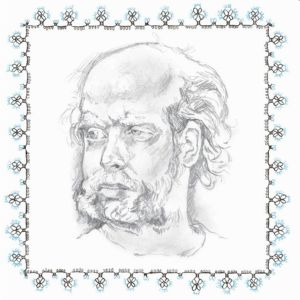
- Format: MP3

As 2007 wound down, Will Oldham, as Bonnie "Prince" Billy, entered the Hexam Head studio in Philadelphia with Greg Weeks and Meg Baird and recorded seven cover tunes and a lone original. Given Oldham's delightfully idiosyncratic method of working, one would expect these tunes (titled only by their writers' names, so it's up to you to figure out what songs he's actually singing) to be radically strange versions of songs both popular and somewhat obscure. While it's true that these are not straight-up readings, they are also far from strange. In fact, what Oldham has done is create a half-hour of relaxed -- if sometimes harrowing and melancholy -- personally interpreted music he enjoys performing. Despite the fine sound and full presence of both Oldham and Baird, there is the distance of reverie, memory, regret, and distance in these songs. There are no stutter steps, loose lyrics, or unexpected interruptions that have made earlier records more marginal, and perhaps -- to some -- more interesting. The bottom line is that only a songwriter could read these songs so subtly and yet inflect them with the kind of immediacy that makes them sound as if they were his own. This is no mean feat when some of the tunes here are considered -- in their respective circles -- as having already been read that way. A case in point is Oldham's version of Gayle Caldwell's "Cycles," which is (and will continue to be) utterly defined by the persona of Frank Sinatra reading it. Nonetheless, as Bonnie "Prince" Billy, he and Baird in duet sing it as if it were some self-reflective back-porch ballad looking on the passage of time and the stages of life. Unless you actually knew this tune well enough, you'd never associate the two versions -- though Weeks does a nice job of injecting some of the original's instrumental and sonic tropes.
Another of these is Mickey Newbury's "I Came to Hear the Music," which opens the set and is one of the songwriter's best-known tunes. In a version that stays faithful to the melody, Weeks adds some of the soft touches inherent in the original production, and Oldham is suddenly very old, looking back on a lifetime of regret. It's pretty, tender, and drenched in both love and grief. Baird's sweet, out-of-time backing vocal underscores the lines with the sense of time's passage. Glenn Danzig's "Am I Demon?" feels like it belongs right where it is and seems more like Oldham's tune than its author's. The male-centered darkness in the Björk/Thom Yorke collaborative tune "I've Seen It All" could have been a Palace Brothers tune, but Weeks keeps that from happening by texturing the space and separation between lead and backing vocal and some spidery reverbed electric guitars. The Phil Ochs tune "My Life" seems to fall a bit flat here -- not much is added, but its real power seems diminished despite that it is obviously the hinge on which the entire EP turns. The lone original here, "I'm Loving the Street," is upbeat by comparison. Its folksy old-time jaunt offers no regrets for anything or anyone who has passed into history. There is only the present. The R. Kelly tune "The World's Greatest" is a different song here, as one might expect, designed as an Appalachian ballad that could have come from anytime, anywhere, but is rooted in the present only by the presence of a ghostly electric guitar. The melody is stretched but recognizable -- barely -- and the true poetry in Kelly's words comes falling out of the mouth of Oldham like clear water from a fountain. This is a solid, less dramatic, but no less interesting -- and in places even compelling -- momentary stopgap for Oldham. To be sure, his fans will certainly want to check this out, but so will anyone interested in the interpretive possibilities of song as a living entity independent of performance.